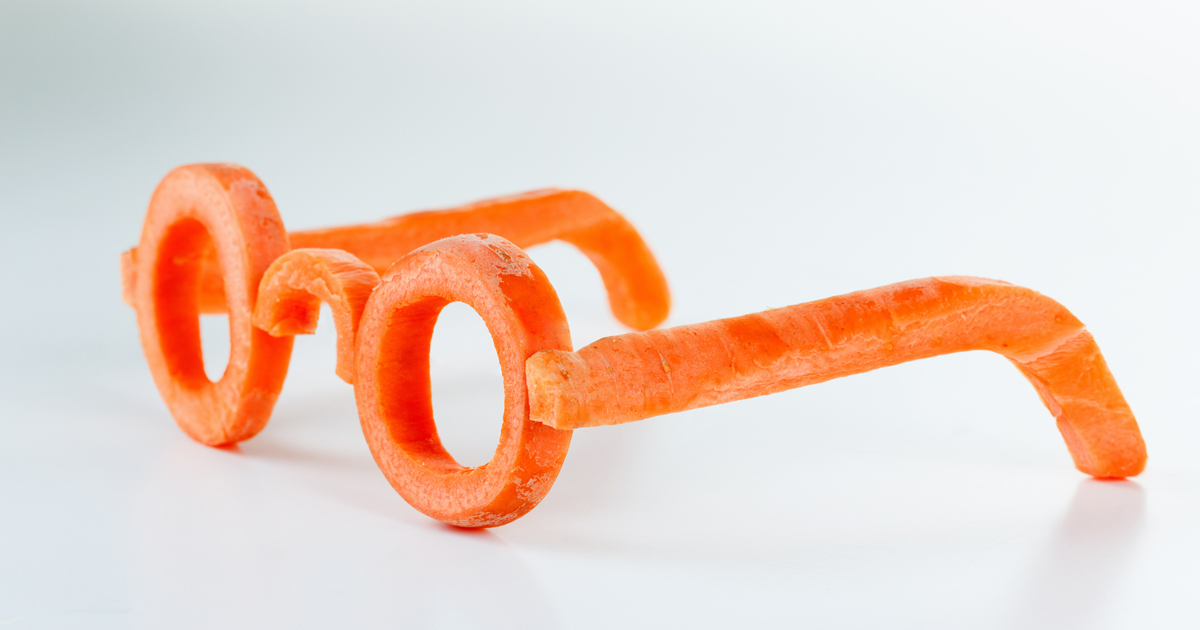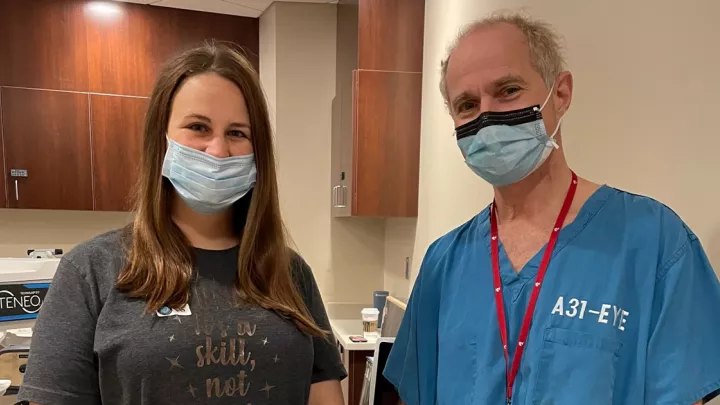5 best foods for eye health

You've probably heard it said at least once in your lifetime: "Eat more carrots! It will improve your eyesight." An old wife's tale or is there truth to this old adage?
"Carrots, or more specifically the vitamins within them, are important for your eye health," says Chris Conrady, MD, PhD, Nebraska Medicine ophthalmologist. Studies show that five foods can help prevent cataracts, clouding of the lens within the eye, dry eyes and glaucoma. They may also protect against age-related macular degeneration, the most common cause of irreversible vision loss in the elderly.
Eat more of these foods to maximize your eye health.
1. Carrots
Carrots contain beta-carotene, which the body uses to make vitamin A. Vitamin A is important to the health of your eyes. Without it or in insufficient quantities, low vitamin A levels can lead to dry eye, corneal scarring, night blindness and vision loss.
2. Kale
Dark green leafy vegetables like kale, spinach and broccoli are rich in the antioxidants lutein and zeaxanthin, which are present in high concentrations in the retina. These antioxidants act as a filter and protect the retina from damaging blue light.
3. Red peppers
Orange and red fruits and vegetables like red peppers, oranges, strawberries, broccoli, and kiwi contain vitamin C, another antioxidant, which may help prevent the development of cataracts.
4. Salmon
Fish, especially salmon, are packed with omega-3 fatty acids. Omega-3 fatty acids help promote the visual health of the retina and can help prevent dry eyes. Salmon, sardines and herring have the most omega-3s, but flounder, halibut and tuna are also good sources.
5. Oysters
Oysters are loaded with zinc, which may be able to slow the progression of age-related macular degeneration. Zinc is also found in turkey, eggs, peanuts and whole grains.
Other things you can do to protect your eyes
Quit smoking
Smoking increases your risk of diseases like macular degeneration, cataracts and dry eyes, says Dr. Conrady. It also makes it more difficult to treat and control issues like inflammatory disorders of the eyes.
Wear sunglasses
Protect your eyes from the sun by wearing sunglasses with both UVA and UVB radiation protection.
Wear protective eyewear
Wear safety glasses or goggles when performing projects like mowing and trimming, construction work, metal work, sawing, etc., where high-velocity projectiles are possible and can severely damage the eye.
Practice safe contact lens wearing habits
Don't wear your contacts past the recommended periods or sleep with them at night, if designed for that. Wash your hands before handling your contacts lenses and disinfect and replace them regularly. Improper use could lead to infections of the cornea, which can lead to severe eye pain and vision loss, and in extreme cases, loss of your eye altogether.
Schedule regular eye exams
Regular eye exams should be scheduled every two to three years up until age 40, every two years between ages 40 and 60 and every year after age 60 for otherwise healthy eyes,
"When it comes to our health, many of us tend to take our eyes for granted," says Dr. Conrady. "Practicing good eye health and getting regular eye exams are essential for keeping our eyes healthy and preventing vision problems. Identifying problems as early as possible can help prevent or reduce vision loss."
Dr. Conrady specializes in diagnosing and treating diseases of the retina, retinal detachments, macular degeneration, uveitis and trauma-related eye problems including dislocated intraocular lenses.
Maintain the health of your eyes with regular eye exams. To schedule an appointment, call 402.559.2020.







